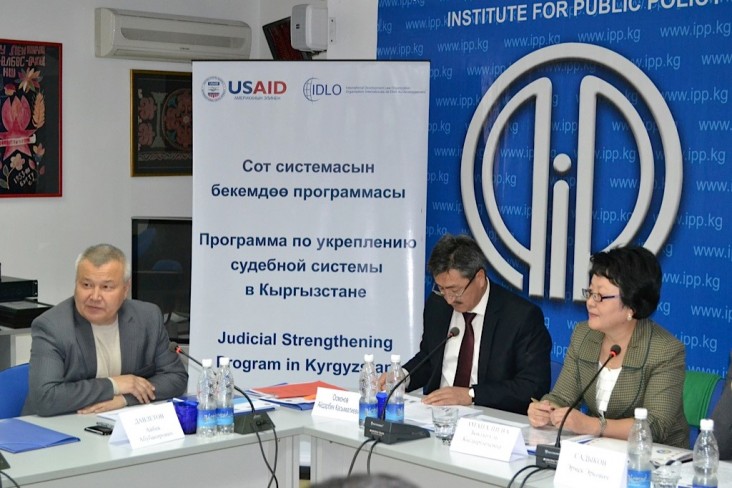
Recognizing that corruption in the judiciary branch nullifies rule of law efforts in the entire country, the Supreme Court of Kyrgyzstan adopted an anti-corruption plan in December 2013 to address the problem.
Under the Kyrgyzstan Judicial Strengthening Program, a joint project between USAID and the International Development Law Organization, recommendations were put forward on how to tackle corruption in the Kyrgyz court system, including when to implement the measures.
In 2012, the program produced the Sector Vulnerability Mapping, an extensive survey documenting opportunities and mechanisms of corruption used by the judiciary, and provided a number of recommendations on how to combat such practices. A majority of the recommendations are included in the Supreme Court’s anti-corruption plan. The mapping was carried out by Transparency International.
The anti-corruption plan details activities necessary to eliminate improper unilateral contact between participants in judicial proceedings, judges and court personnel. The plan also puts forward measures to expand public access to information about court proceedings, including publication of judicial decisions and the use of "e-court"—modern information management systems—by all courts to provide reliable information to participants. The plan mandates improved processes to reveal improper pressure exerted upon judges by government officials and that severe penalties be imposed upon those who interfere improperly in court decision making.
"The adoption of the anti-corruption plan and the anti-corruption program by the Supreme Court is a major step forward in the battle against corruption within the Kyrgyz judiciary,” said Kural Abdikadirov, adviser to the chairwoman of the Supreme Court.
With USAID providing technical support, the plan recommends judicial organs improve processes for selecting judges and disciplining those who do not perform in accordance with the law. After adopting the plan, the Supreme Court introduced automated case distribution within its system with assistance from the Judicial Strengthening Program, which runs in Kyrgyzstan from September 2011 to September 2016. The distribution will assign cases at random, illuminate conditions for corruption and undue influence, and safeguard the impartiality of judges.







Comment
Make a general inquiry or suggest an improvement.